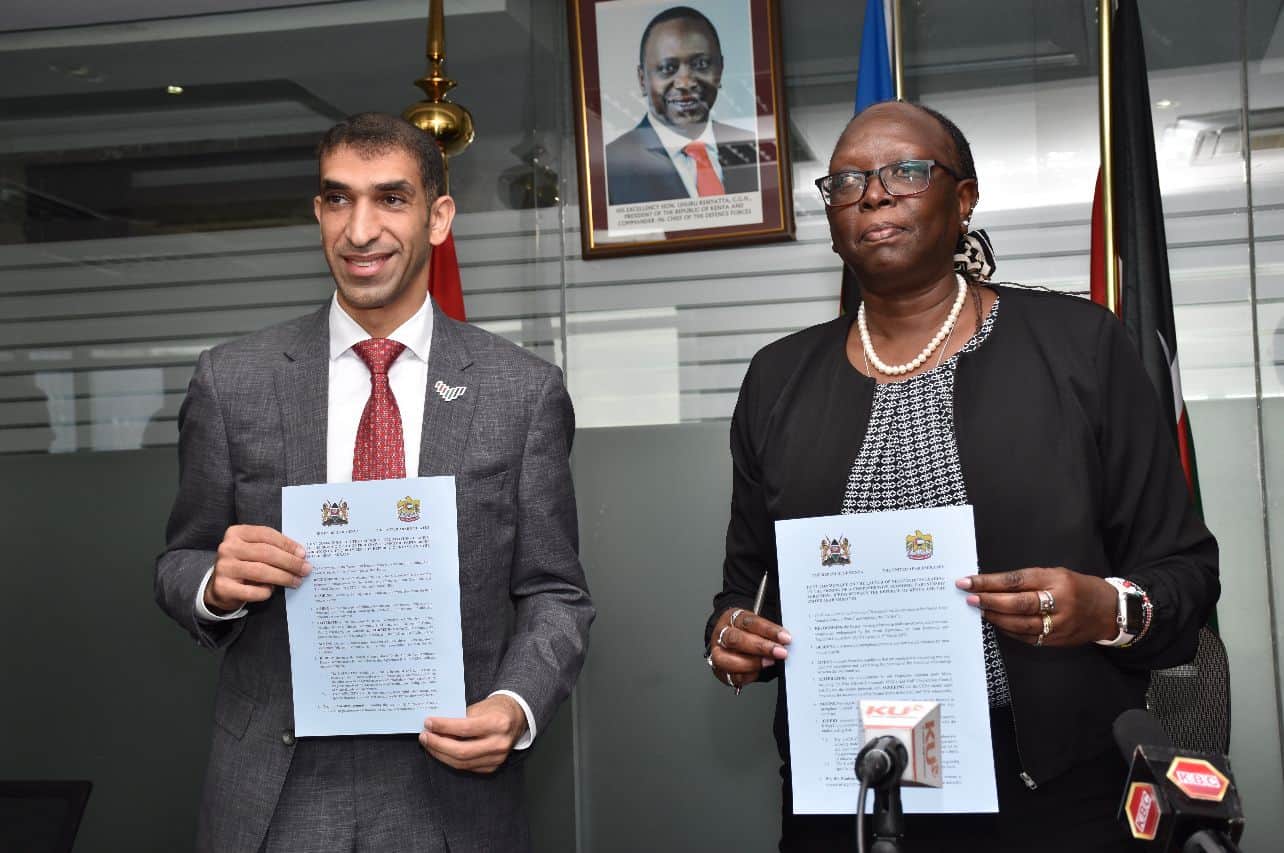UAE and Kenya announced their intention to begin talks for a Comprehensive Economic Partnership Agreement (CEPA) between the two countries in Nairobi.
UAE Minister of State for Foreign Trade Dr. Thani bin Ahmed Al Zeyoudi and Cabinet Secretary, Ministry of Industrialization, Trade and Enterprise Development of Kenya Betty Maina issued a joint statement about their intention to negotiate a free trade agreement between the two countries.
Dr. Khalifa Al Rayssi, Charge d’affaires of UAE Embassy in Kenya, attended the signing.
The UAE-Kenya CEPA will be the first bilateral trade deal that the UAE seeks to sign with an African nation.
Such an agreement will deepen trade and investment ties between Africa and the Middle East and boost the total value of UAE-Kenya non-oil bilateral trade, which grew to US$ 2.3 billion last year.
The UAE and Kenya aim to remove trade barriers on a range of goods and services, creating new opportunities for imports and exports in both countries.
“There is tremendous opportunity for closer economic integration between our two nations, especially in agriculture, tourism, infrastructure, technology and renewable energy,” said Dr Thani Al Zeyoudi.
“Announcing our intention to begin negotiations on the UAE-Kenya CEPA reflects our shared commitment to achieving greater economic progress through trade and investment,” he said.
“Our efforts to establish strategic economic partnerships worldwide through our CEPAs will fast-track our growth and prosperity for the next 50 years,” he added.
Kenya’s economy, the largest in East Africa, is forecast to grow 5.5 percent this year from 7.5 percent in 2021, with the modest slowdown reflecting headwinds pressuring global markets.
Tourism and agriculture remain among its most dominant sectors, although the country has a fast-growing financial services industry coupled with competitive manufacturing and ambitious plans for green technology.
High-level UAE-Kenya CEPA talks will begin in the coming months.
They will follow the completion of three CEPAs this year, namely India, Israel and Indonesia, under the country’s ‘Projects of the 50’ initiative that aims to make the UAE a global business hub.








